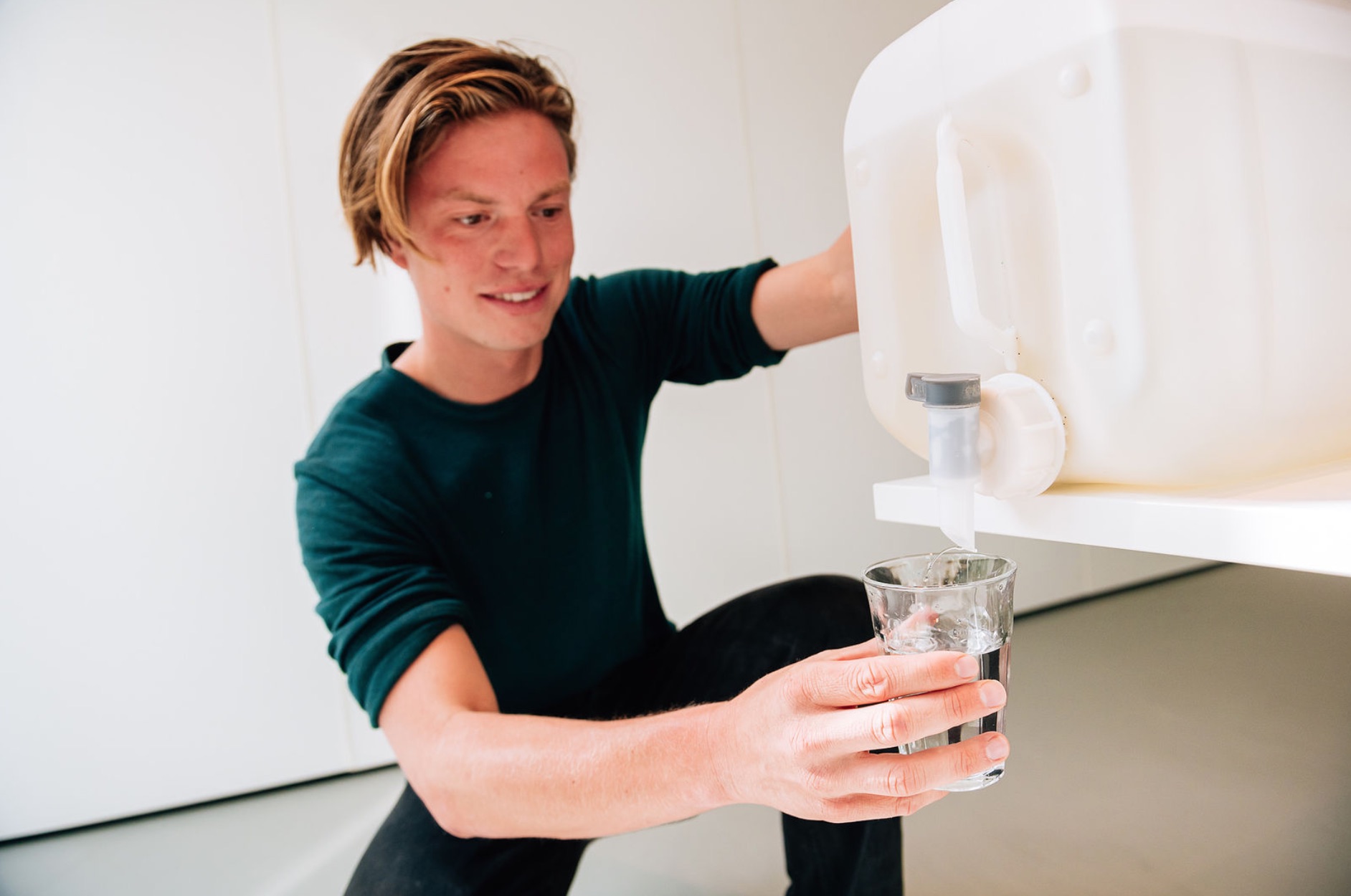Alumnus Olivier de Gruijter has received the Dutch James Dyson Award for his water filter that fits on a jerry can. He came up with the solution while jogging.
Olivier de Gruijter demonstrates the awarded waterfilter. (Photo: David Stegenga)
Olivier de Gruijter was among 21 winners that received the Dutch James Dyson Award on 19 September. The monetary award was EUR 2,200. The international short list will be made known next month and the international winner announced on 14 November.
Four years ago, De Gruijter graduated with honours for his water filter for developing countries. After graduating, he continued working on the innovative water filters that could offer a solution to current water issues. During a research trip to India, he saw the large number of jerry cans that were being used to transport water. This gave him the idea of combining a jerry can with a water filter.
‘Diarrhea is one of the major causes of under five child mortality’
He recounts his experience there. “While in India I was amazed at the number of children who were dehydrated or had diarrhea because of drinking dirty water. Their lives were often cut short. Diarrhea is one of the major causes of under five child mortality.”
According to the World Health Organisation, more than 780 million people worldwide do not have access to clean water. As a result, 1.5 million people die every year of water related diseases, most of whom are children under the age of five.
De Gruijter came up with his solution while jogging. What if he could make a small filter that would fit on every jerry can? He started working on his idea and designed the JERRY. The JERRY water filter can supply large amounts of clean drinking water and even a child can use it.
Once the tap is open, pressure pushes the dirty water through three filters. No electricity is needed. Every filter has a specific function. The first filter removes the large materials such as dirt and sand from the water. The next filter, the micro membrane, stops 99.99% of the bacteria and parasites. The third binds the active charcoal filter chemicals such as chlorine and improves the taste.
As the filters can be cleaned, and therefore have a long life, the three combined filters can filter more than 10,000 litres of water. Furthermore, each filter can be replaced individually, thereby minimising waste in the environment. The initial price estimates show that the filter can be manufactured for under USD 5, making it one of the cheapest water filters currently available.
Do you have a question or comment about this article?
j.w.wassink@tudelft.nl


Comments are closed.